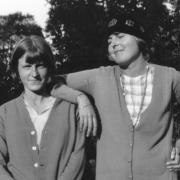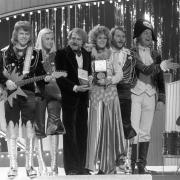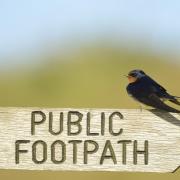In an effort to revisit our rural traditions, Clive Agran attends a ploughing match.
Go back 300 years or thereabouts and most of us here in Sussex would have been busy working on the land. Digging, hoeing, planting, milking, sowing, harvesting, sawing and shearing; the jobs were hard, varied and ultimately quite satisfying with a frothy pint or two at the end of the day and a few groats at the end of the week.
Because there was a fair bit of pestilence and famine knocking about, as well as an ever-present risk of being slain by some marauding army, gang or highwayman, life expectancy wasn’t all that high, and anyone who reached the ripe old age of 30 would have considered themselves rather fortunate.
The rural way of life was eventually shattered by the onset of the industrial revolution. People migrated to the towns and cities, worked in factories and switched from ale to gin. Villages that were once busy and bustling with shops, pubs and various amenities fell silent with many houses remaining unoccupied. Then came improved communications together with commuters willing to travel to work every day, and now the countryside has been repopulated with accountants and analysts, bankers and brokers, chiropractors and choreographers, all seeking a quieter life.
Although many of the comparatively recent arrivals enjoy what the beautiful Sussex countryside has to offer in the way of wildlife, fresh air and tranquillity, there is far less connectivity with the land and a growing nostalgia for our rich rural traditions.
In an effort to better appreciate what would appear to have been lost, I’ve come along to a huge field near Battle for what I suspect was the early precursor of today’s top sporting encounters. It’s a ploughing match, and although Sky Sports isn’t here, there’s a proper car park and a decent crowd. Because the ‘playing area’ is so vast, instead of packed terraces there are just occasional clumps of spectators scattered about.
Alongside several pairs of magnificent shire horses, the ageing tractors almost look modern, but their rhythmic puffing, melodious spluttering and constant wheezing is very evocative of a bygone era. Just as fascinating as the machines are the grizzled geezers sitting on top of them. Of a similar vintage to the tractors, they quietly cajole their temperamental charges and occasionally administer less subtle thumps. And it’s not just the engines they have to keep an eye on, as the plough behind frequently requires attention as well.
All this considerable effort produces what to the untrained eye appears to be row upon row of identical furrows. Amongst them wander men in wellington boots and brown jackets carrying clipboards. They point and probe and are evidently able to assess their quality. If you will excuse the expression, what on earth can they possibly be looking for?
According to Simon Tingley, who is Chairman of the East Sussex Ploughing Match Society and therefore in a position to know, there are various important elements to consider, such as the neatness of the plough’s entry and exit, which should be even and not ragged. The furrows should be regular, straight, firm, of equal depth and with no holes. The straw and other extraneous matter that was previously lying on the surface should be buried. Only one tractor wheel mark, not two, should be discernible. And the final furrow should be close to the first furrow with no unploughed or re-ploughed land.
There are quite a few other factors to be taken into account, in comparison with which football’s offside rule is breathtakingly simple. But let’s leave those for another time.
There are several different categories and the winners of each not only collect a handsome trophy but also go forward to the Sussex Championships. Victory there will enable them to progress to the All-England Championships and then, yes, the World Championships. This year’s World Championships were held in Alberta, Canada back in July where, presumably, there was more than enough space to accommodate the competitors from the 29 participating countries. Regrettably, ploughing is not yet an Olympic sport but, to my mind at least, it’s a great deal more entertaining than, say, dressage or synchronised diving, either of which, I believe, it should replace.
Possibly one reason it hasn’t, is that match ploughing appears to be an exclusively male occupation. Quite why women don’t find tinkering with greasy old machines and humpy heavy equipment about appealing is something of a mystery. Others might find it strange that men appear to enjoy it but, as Simon Tingley believes, there’s considerable value in keeping the old skills alive and ploughing matches certainly help do that. Long (and straight) may they continue.



























